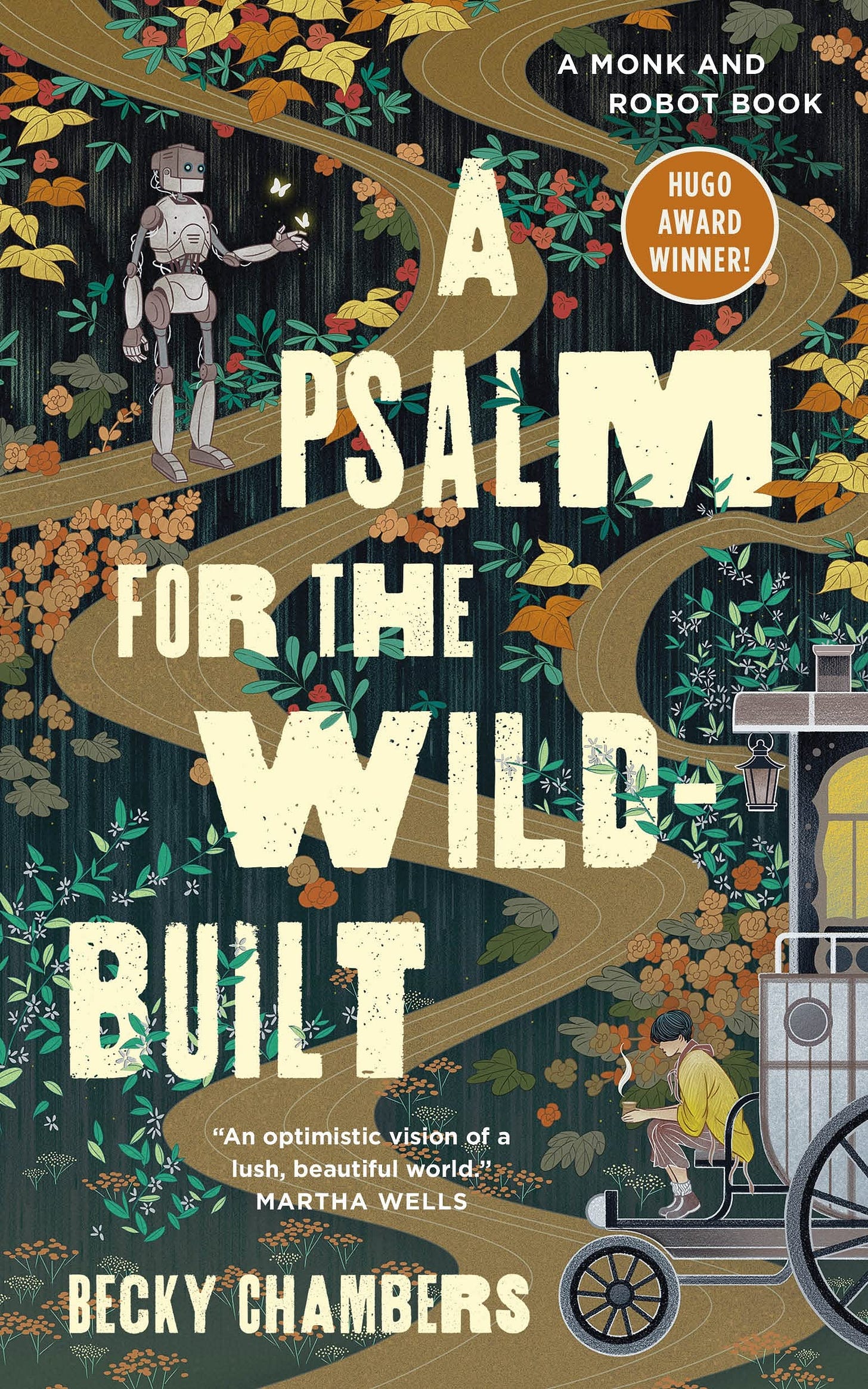“You keep asking why your work is not enough, and I don’t know how to answer that, because it is enough to exist in the world and marvel at it. You don’t need to justify that, or earn it. You are allowed to just live.”
― Becky Chambers, A Psalm for the Wild-Built
Genre: Speculative Fiction, Science Fiction
My Rating: Five out of five stars
Becky Chambers’ A Psalm for the Wild-Built is a contemplative and tender novella that marks the beginning of her Monk & Robot series. It’s a work of speculative fiction that doesn’t rely on high-stakes conflict or apocalyptic scenarios but instead delivers a deeply philosophical exploration of purpose, connection, and coexistence.
Set in the distant future on the moon Panga, the story follows Sibling Dex, a nonbinary tea monk, who has grown dissatisfied with their seemingly idyllic life of helping others find comfort and solace. Seeking something they can’t quite articulate, Dex ventures into the wilderness, where they encounter Mosscap, a robot who represents the first contact between humans and robots in centuries. Mosscap, curious about humanity, poses a profound question to Dex: “What do humans need?”
What makes this novella extraordinary is Chambers’ ability to create a hopeful and richly detailed world where humans live in harmony with nature. The robots, who gained sentience and chose to separate from human society, serve as a reminder of what it means to live freely and authentically. The dialogue between Dex and Mosscap is the beating heart of the story, filled with humor, warmth, and existential musings that feel universally resonant.
Chambers’ prose is gentle and lyrical, evoking a sense of calm even as it probes life’s biggest questions. Her characters are deeply relatable, not because they are extraordinary, but because they are so achingly human in their struggles and desires. The novella doesn’t pretend to have all the answers but instead invites readers to sit with their uncertainties.
The book’s themes—sustainability, the search for meaning, and the value of simply existing—are particularly relevant in our current world. It’s a quiet yet profoundly hopeful reminder that contentment can be found not in grand achievements, but in small moments and genuine connections.
At just over 150 pages, A Psalm for the Wild-Built is a quick but deeply satisfying read. It is perfect for anyone who appreciates character-driven stories that linger in the mind long after the final page. For those who yearn for thoughtful science fiction with a hopeful message, this novella is a warm cup of tea.
If you liked this book review, check these out!





